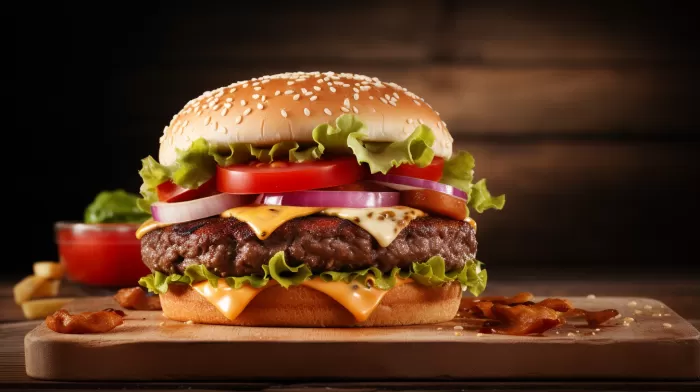Indulge in that delicious burger for dinner without an ounce of guilt, but make sure to leave out the bun if your goal is to lose weight. Time after time, low-carbohydrate diets have proven effective at promoting weight loss and managing obesity. Say goodbye to unnecessary carbs, and hello to a healthier you.
Low-Carb Diets for Weight Loss
Research reveals that low-carb diets are effective for weight loss. A comprehensive analysis of 17 weight-loss studies involving 1,041 obese individuals demonstrated that low-carb diets led to an average weight reduction of 18 pounds within six months.
In recent years, we’ve come a long way from dismissing programs like the Atkins diet as unhealthy. According to Gary Foster, director of the Center for Obesity Research and Education at Temple University in Philadelphia, adopting a low-carb diet is “a viable alternative for weight loss.”
Understanding Carbohydrates
Carbohydrates can be classified into two main categories: simple and complex.
Simple carbohydrates are sugars that are quickly absorbed by the body, giving you a quick hit of energy. They’re found in fruits, milk, and milk products, as well as in processed foods like candy, soda, and baked goods, which often contain added sugars.
Complex carbohydrates or starches take longer for the body to break down and process, providing a more stable and long-lasting supply of energy. Sources of complex carbs range from whole grains, legumes (beans, peas, and lentils), and starchy vegetables like potatoes and corn.
When it comes to weight loss, it’s essential to make a distinction between these two types of carbohydrates. While simple carbs can lead to weight gain due to their rapid impact on blood sugar levels, complex carbs provide a more stable energy source and can help you feel fuller for longer.
The Benefits of Going Low-Carb
Choosing a low-carb diet doesn’t mean you have to cut carbs out of your diet entirely; it’s about making smarter choices and limiting specific types of carbohydrates. Here are some benefits of adopting a low-carb approach to weight loss:
- Weight Loss: As the research mentioned earlier has shown, low-carb diets can effectively lead to weight loss. By reducing your intake of refined carbohydrates like white bread, pasta, and sugar, you’re likely to consume fewer calories overall, which contributes to weight loss.
-
Reduced Hunger: Low-carb diets can help you feel fuller longer by emphasizing high protein and high-fat foods. This can result in lower overall calorie consumption.
-
Improved Insulin Sensitivity: A low-carb diet can help improve your insulin sensitivity, reducing your risk of type 2 diabetes. A study
by the National Institutes of Health found that a low-carbohydrate diet improved insulin sensitivity by 75%. -
Better Blood Pressure Control: Reducing your carbohydrate intake can help lower blood pressure, an essential factor in maintaining cardiovascular health.
Incorporating Low-Carb Choices into Your Diet
Getting started with a low-carb diet doesn’t have to be complicated. Here are some straightforward tips to help you choose low-carb alternatives:
- Choose Whole Grains: Swap out white bread, pasta, and rice with whole grain alternatives like whole wheat bread or pasta, brown rice, and quinoa. Whole grains are higher in fiber and nutrients, resulting in more stable blood sugar levels.
-
Eat More Non-Starchy Vegetables: Fill your plate with leafy greens and other non-starchy vegetables like broccoli, cauliflower, and peppers. They’re not only low in carbs, but also high in fiber, vitamins, and minerals.
-
Opt for Lean Protein Sources: Focus on incorporating lean protein sources like chicken, turkey, fish, and tofu into your meals. These low-fat, high-protein options can keep you full for longer and promote muscle growth.
-
Cut Out Sugary Drinks: Replace sodas, fruit juices, and flavored coffee drinks with water, unsweetened tea or coffee, or sparkling water. Sugary beverages can add unnecessary carbs and calories to your diet.
-
Avoid Processed Foods: Processed foods often contain added sugars and simple carbs that can sabotage your weight loss efforts. Instead, focus on whole, unprocessed foods like fruits, vegetables, nuts, and seeds.
The low-carb approach may not work for everyone, so it’s crucial to find a dietary plan that works best for you. However, many people have experienced significant weight loss success by cutting back on carbs, and it just might be the key to achieving your goals.
So, go ahead and savor that juicy burger guilt-free, but remember that your waistline will thank you for leaving the bun behind.



